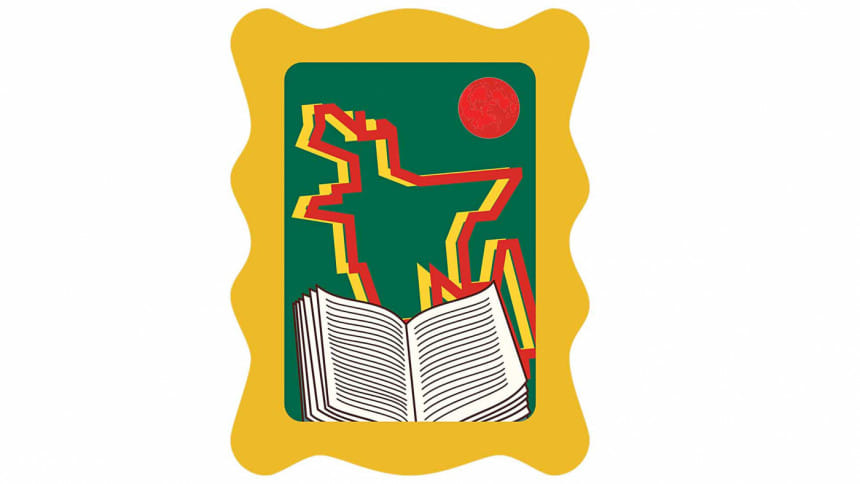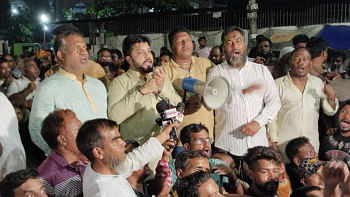Bangladesh at 49: A Portrait in Books

It has been almost five decades since Bangladesh became independent. After all these years, it is only natural to ponder over our failures and achievements as a nation. Here are a few books that can help one reflect on the state of our nation today.
The Islamist political fractions made it to the headlines recently with their opposition to sculptures, an act coherent with their open desire for the establishment of Shariah based Islamic laws in the country. This draws our attention to the nature and history of Islamist politics in our country, and its ambivalence with many of our expectations for a secular state. Ali Riaz's book Lived Islam and Islamism in Bangladesh (Prothoma, 2017) shows great analytical prowess in taking a comprehensive look over Islam as a practised religion by millions in the country, the rise of Islamist militancy that led to the Holey Artisan Attack in July 2016, the madrassah education system, and the confrontation of the protesters at Shahbag with Islamist ideologues in 2013.
While it is essential to understand the dynamics of Islam, which is practised by the majority in Bangladesh, it is no less important to pay close attention to the affairs of other ethnic and religious communities.
The marginalisation of the Jumma (Pahari) people of the Chittagong Hill Tracts through encroachment of indigenous land by Bengali settlers and creation of a violent and tumultuous environment in the region has happened with active participation and encouragement of the state apparatus. In Bangladesh's short history of 49 years, 24 of them have passed without any justice to the abduction of Kalpana Chakma or the other instances of violence. The 75 essays in Between Ashes and Home: Chittagong Hill Tracts in the Blind Spot of Bangladesh Nationalism (Drishtipat, 2010), edited by writer and artist Naeem Mohaiemen, takes a critical look at this failure on our part.
More recently, a video which depicted a woman smoking a cigarette has gone 'viral' on Facebook. The reactions that followed on social media and elsewhere testify to the hypocritical double standards our patriarchal society imposes on women. This, of course, is nothing new. Soti o Sotontro-ra: Bangla Shahitte Nari (Dibbya Prokash), an anthology edited by Shaheen Akhtar, aims to show the portrayal of women in Bengali literature from the middle ages to the recent times. This is a fascinating project which does not burden the reader with ambiguous and heavy discussions of feminist theory to uncover the grotesqueness of the male gaze. It achieves its goal rather effectively through careful compilation of literary works throughout the ages.
The great playwright Munir Chowdhury's play in one act, Manush (1947), unflinchingly suggests that our humanity supersedes any other particular notions of identity that we may embrace as Hindus or Muslims. Set in the tragic and blood-soaked backdrop of the communal riots before the Partition of 1947, a Hindu doctor risks his life to aid an ailing Muslim boy when the rioters come knocking on the doors looking for him. When asked who he is at this critical juncture of life and death, he would respond, "Ami manush," ("I am human").
Soon after the theatrical performance of the play, Munir Chowdhury faced public lynching twice for his bold stance on social harmony. It seems the seed of communal tension which is at the centre of Munir Chowdhury's play is still present, evident in the desecration of mandirs and Durga Puja mandaps every year—which we tolerate as if they were background noise—and the spread of nationalism, parochialism, and intolerance both at home and across the world.
There is a substantial lack of books that can passionately chronicle the historical and cultural narratives that give shape to the idea of Bangladesh as a nation today. These four books are rare exceptions that effortlessly achieve this goal.
The writer is grateful to Gyantaposh Abdur Razzaq Biddapeeth for its rich collection of books and resources that aided the formation of ideas in this article.
Mursalin Mosaddeque grew up in Rangpur, a suburban town in Northern Bengal. He can be reached at [email protected].

 For all latest news, follow The Daily Star's Google News channel.
For all latest news, follow The Daily Star's Google News channel. 



Comments